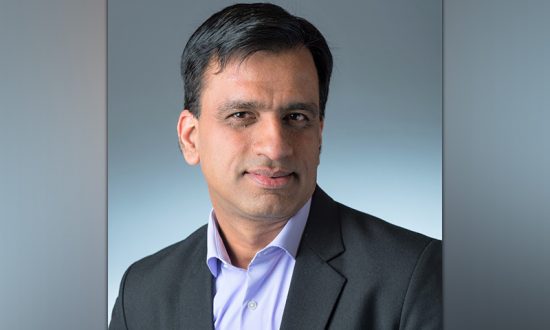Vikram Gidwani is the Country Head (India) of BioCatch, a pioneering digital identity company fighting against global financial fraud while empowering digital financial experience by leveraging behavioural biometrics and cutting-edge technology. At the company’s helm, he is responsible for closely working with Banking, Financial Services and Insurance (BFSI) industry, e-commerce vendors, the new-age payment industry and system integrators. He is also accountable for ensuring customer satisfaction and assisting the fight against cybercrime in India by bringing behavioural biometrics to the front.
What does a cybercriminal look like to you? Are they wearing a hoodie or typing away on a computer in an underground bunker? A cybercriminal probably looks a lot more like you than you may expect. Fraud has become big business, and you are probably more likely to stand next to a cybercriminal on the train on your way to work than to encounter them in the corner at your local coffee shop. They wear carry backpacks and briefcases, travel to an office and look a whole lot more normal than you expect. Why? Financial fraud has become a massive business in India alone this year. As the fraud industry grows cybercriminals have had to get “smarter” to beat banks fraud controls and access consumer funds. Today cyber criminals use consumer’s lack of knowledge, innocence, and vulnerability to commit arbitrary crimes, especially financial ones.
Even before the COVID-19 outbreak turned our lives upside down, technology was rapidly taking the centre stage, seeping into our day-to-day lives. The introduction of Unified Payments Interface (UPI), net banking, and faster verification processes through cutting edge tools like AI and Machine Learning(ML), have made banking and financial services more convenient and accessible. However, simultaneously, the technology has also paved the way for increased vulnerability to financial fraud and scams.
From fake prizes and international lottery scams to identity theft, phishing, inheritance fraud, tech-support sham, business email compromise, and social engineering voice scams, for every type of modern-day con, criminals use ultramodern technology to throw a bunco on victims. But, if the cutting-edge technology can support criminals, it can also assist good guys in preventing the aforementioned global financial crimes.
Can progressive technology prevent global financial fraud?
Don’t share OTP and ATM Pins! Don’t share details over the phone call! Don’t click on links in unverified emails! We’ve all heard these warnings before, keeping your private information safe online is easier said than done. Today, there are several high-profile financial crimes that happen across the globe that even cybersecurity and FinTech experts find challenging. When even the experts need to take a closer look should we expect unaware but genuine customers to catch these highly sophisticated scams and safeguard their money and identity? This is where the need for innovative solutions and technologies like behavioral biometrics arises. In this day and age, it’s far easier to extract personal information like address, email and bank details, phone number, and date of birth by stealing or manipulating the human factor.
Cybercriminals have unmasked the weaknesses, vulnerabilities, and pain points of the financial services industry by taking advantage of the human factor: unknowing bank customers. Consumers might think that their financial information is secure with safeguards such as One Time Passcodes (OTP) and similar authentication methods, but these can’t solve for the more sophisticated criminal methods. It is critical for financial institutions to leverage advanced fraud prevention technology to ensure secure financial transactions.
What is Behavioral Biometrics, and how can it prevent financial fraud?
The sudden introduction of the COVID-19 outbreak forced people to adopt digital financial services before they were adequately familiar with this technology. However, with this rapid growth of Indians progressing towards financial inclusion, suspected financial fraud attempts also started rising. According to research conducted by Transunion, the Indian financial services industry witnessed a rapid surge in suspected attempts of digital frauds by 88.50%, whereas the percentage of alleged attempts of global financial frauds is close to 149%. The conundrum is these fraudulent attempts and schemes are old. They might have evolved, but the core process is the name, but our prevention remedies have not changed.
At such a point when the world is facing persistent digital financial threats, the invention of behavioral biometric technology is nothing short of a blessing. Several financial institutions have already started to adopt this game-changing technology to prevent potential financial fraud and fortify their digital financial services. In simple terms, behavioral biometrics analyses user’s digital and cognitive-behavioral patterns to distinguish between genuine users and possible cybercriminals. This novel technology leverages ML and AI to authenticate the user’s digital activity rather than relying on physical appearance and static information sources such as passwords and device IP.
Too good to be true
In the fast-paced world of quick transactions, hassle-free financial assistance, new-age technology, and efficient verification processes don’t think for a moment that only good guys are taking advantage of technology. Crime will always evolve as criminals make an effort to stay ahead of new consumer safeguards and protections and it is hard for consumers to stay aware of intricate scams. To counter the imminent threat, up-and-coming startups and digital identity companies are developing innovative solutions that harness the power of human behavior empower digital trust and safety. To protect themselves and their clients against potential financial risks, it is vital for banking and financial institutions to partner with these emerging digital identity companies. It is no exaggeration that the future of financial security is in the hands of these financial fraud prevention companies.


